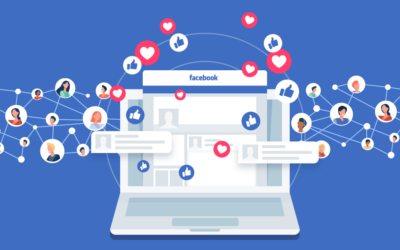No time to listen now? We'll send it to your inbox.
No time to listen now? We'll send it to your inbox.
or scroll down to get the highlights

It’s the embarrassing little secret that ecommerce store owners don’t like to talk about.
Why do we always feel broke? It is so frustrating, embarrassing, and it causes us so much stress.
It’s important that we talk about it, because for most of us, when we get into a cash flow crunch it makes us feel like we’re failing. Like we’re doing something wrong.
It’s embarrassing, and it affects how we run the business.
Running your business when cash is tight is like trying to run your business wearing handcuffs.
It often leads to making poor decisions made out of a desire for a quick fix.
It’s a tough problem to solve, and most of us suffer in silence.
The truth is, many store owners don’t know that there’s a conflict between our sales goals and the real cost of growing a product based business.
We’re wired to want to grow our sales, and we can learn how to do this. We teach this in the Inner Circle, and it’s the exciting part of business for most of us.
But nobody teaches us the downside. That most store owners don’t know that growth is expensive, and that it has the potential to strangle your cash flow and make it really hard to run your business.
The most important thing you need to know is that it’s preventable.
And if you have a cash flow crisis, it’s fixable.
Today on the Podcast, I’m talking about why it happens – but more importantly, how you can fix it and have more cash in your business.
Scroll to the bottom to listen, or read on…
I want everyone who’s feeling bad about their current cash situation to reframe how you think about it.
It’s just another problem to solve. And you’ve already solved harder problems – if you’re listening to this, I’m betting that you are a problem solver.
So before we talk about how to solve your cash flow problem – let’s talk about why it happens.
Why do I always feel like I’m short of cash in my Business?
There are a few reasons most store owners hit the wall and run out of cash.
The most common reason is start-up costs.
Our industry promotes that it’s fast and easy and cheap to start an ecommerce business. All that promotion creates an expectation that you can start on a shoestring, and the sales will pour in.
But that’s not normal. In fact, here’s what I see; most people start their business with personal funds, or they use a line of credit, or they borrow the start-up money from family.
They use their start-up cash for things like:
- Website
- Fees
- Training
- Products
- Supplies / Tools
Basically they spend most, or all of their money getting started.
And when that start-up money is debt, most people feel immediate pressure to pay it back.
And we actually expect that we should be able to pay it back out of the profits of the business.
Here’s the problem with that:
Sales don’t roll in right off the bat. It takes time to learn, and money to pay for traffic to your store. You also have to spend money to replace the product you’ve sold and stock a little extra for growth.
Often it takes all the money you have and then some.
And so for most everyone with this kind of cash flow crunch, they feel like they’re failing, and the business isn’t successful. Because they’re not good at it.
Your business is an investment.
It’s like buying a house. You need capital. When you buy a house, you need a lump of cash for a down payment. And you invest that money with no expectation of getting it back quickly.
It’s a capital cost. Start up costs for your business are the same. They are capital costs. It’s completely possible that you’ll never take that stat-up money out of the business.
Maybe not until you sell it.
But, if you do need to pay it back, it needs to be a capital loan. You amortize it over a long period of time.You have equal monthly payments, like a mortgage. Keep the payments really tiny at first, and then you have the option of paying it down faster after you become profitable.
Doing that takes the pressure off you. You’ll treat your loan payment like a small fixed expense.
Once you understand this – you can stop feeling like you’re failing, and stay focused on running your business.
Are you growing too fast?
The other cash crunch scenario I see often is when someone’s been in business for a while, and their sales are growing fast. The problem for them isn’t sales.
In fact, these store owners can’t understand how they can have such great sales and no money. Their cash goes out the door as soon as it comes in.
Outwardly, they feel successful – they have great sales.
Internally, they feel like they’re a hot mess.
They don’t know what to do and think they’re not good at this part of the business.
If this is you, here’s what you need to know:
You don’t have cash, because you’re feeding the beast.
We have this common perception that we should be able to finance our growth by just getting more sales.
The problem is that the cost of your growth is more than the cash you’re generating to finance it.
You need to constantly buy more inventory to support your growing sales, and you need to maintain a higher level of inventory every month.
What this happens, you’re probably taking the cash that you need for operating expenses and using that money to buy more inventory. You’re feeding the inventory beast.
When this happens – you look for relief from this constant shortage of cash, and you tell yourself that if you just had an extra $10K or $20K you could get ahead.
And you take a Shopify loan – or a Paypal loan. It relieves the stress, but only for the short term. What you really needed was an Investment of capital, and when you took on short term debt, you put a bandaid on a 10 inch gash.
You need to replace the inventory you sell every month, PLUS buy more, but you have even less money to do it because you’re paying that loan back every week, and now you have even less cash.
How do you fix your cash flow for good?
- You inject capital into the business – as an investment or long term debt
- You pare down your skus – cut out 25% of your products – so your $ aren’t spread so thin
- You control your growth. Every month you put your landed COG into a separate account and then you decide how much of your profit you want to “invest” in your business – you can add that in too.
That’s all you spend. You will control your growth – you’ll focus on your best sellers, and you’ll sleep better at night
Here’s how to rethink how you feel about your cash.
- If you have a cash flow problem, you are not failing. You have a viable business, and all it means is that you have a problem to solve.
- Understand the capital costs in your business. Capital costs are investments – equipment, inventory, start up costs, level up costs (moving to a bigger space), coaching, some contact services. Capital costs are investments. They need to be funded by a cash injection or long term debt amortized over several months or years.
- Operating expenses are the cost of running your business. Ads, employees, rent, taxes, postage, your esp, apps. These expenses are often recurring. They need to be funded by the profit in your business. If you have a cash flow issue, cutting these expenses to the bone will only be a short term fix.
Next week on the podcast, I’m going to share my thoughts on how to grow your sales in a profitable way – where you can grow your sales without feeling like you’re broke.
New FREE Course
GROW YOUR SALES
(without breaking the bank)
Conversion School is a step by step process to grow your sales,
without spending a fortune on risky ad strategies, or discounting your products.
Works for Ecommerce stores at all stages.
Start getting consistent sales, and see significant sales growth every month.
New FREE Course
GROW YOUR SALES
(without breaking the bank)
Conversion School is a step by step process to grow your sales,
without spending a fortune on risky ad strategies, or discounting your products.
Works for Ecommerce stores at all stages.
Start getting consistent sales, and see significant sales growth every month.
Add This To Your “Must Do” List For 2025, Episode 245
No time to listen now? We'll send it to your inbox. No time to listen now? We'll send it to your inbox. or scroll down to get the highlightsThe Messaging Strategy That Will Make Your Products Stand Out Let’s face it—most...
How to get 1M eyeballs on your products every month, Episode 244
No time to listen now? We'll send it to your inbox. No time to listen now? We'll send it to your inbox. or scroll down to get the highlightsBoost Your Sales with Social Media Reach: What Every Store Owner Needs to Know...
Ready For Results? I Think You Should Hear This, Episode 243
No time to listen now? We'll send it to your inbox. No time to listen now? We'll send it to your inbox. or scroll down to get the highlightsDouble Your Sales Without Spending More on Ads Ever wish you could boost your...




Oh my gosh, I felt like you were talking directly to me! Feelings of failure can be crippling and lead to poor business decisions. Thank you for showing me how to “reframe” my thinking.